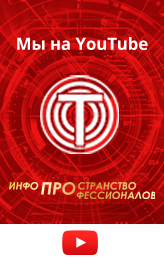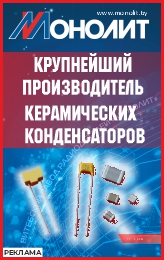Просмотры: 2278
17.11.2011
THE 2011 IEEE East-West Design & Test International Symposium (EWDTS) took place from 9 to 12 September in Sevastopol, Ukraine.
As in past symposium, EWDTS 11 was technically co-sponsored by the IEEE Computer Society’s Test Technology Technical Council (TTTC). Kharkov National University of Radioelectronics and Sevastopol National Technical University organized this year’s symposium, with support of Aldec, Synopsys, Cadence, DataArt Lab, Tallinn Technical University, and Kaspersky Laboratory.
The goal of the symposium was to exchange experiences in design and test of electronic systems among scientific experts from Eastern and Western Europe, as well as other parts of the world. The audience mainly consisted of professors, engineers, graduate students, and managers from world industry. 101 attendees from 34 different countries participated in the symposium.
During nine years EWDT Symposium gathered participants from 62 countries: Algeria, Argentina, Armenia, Austria, Australia, Azerbaijan, Belgium, Brazil, Bulgaria, Byelorussia, Bangladesh, Canada, China, Columbia, Côte d’Ivoire, Croatia, Czech Republic, Denmark, Finland, France, Egypt, England, Estonia, Hong-Kong, Georgia, Germany, Greece, India, Ireland, Iraq, Iran, Israel, Italy, Japan, Jordan, Korea, Kazakhstan, Latvia, Lebanon, Lithuania, Luxembourg, Moldova, Mexico, Nigeria, Norway, Pakistan, Palestine, Poland, Romania, Russia, Singapore, Slovakia, South Korea, Spain, Syria, USA, Taiwan, Turkey, Vietnam, Sweden, Ukraine, Uruguay.
Western contributions
Researchers from Western countries presented an overview of state-of-the-art design and test trends.
Jack Arabian, founder of Comparative Management Associates, made a report “Software Testing of a Simple Network“; Rich Goldman, Synopsys, Armenia, had a presentation “Tech & Space: A Symbiotic Relationship”; Anatoly Ivanov, Cadence, made a report “Cadence EDA flow for IC’s and electronics”; Alexander Kamkin, Institute for System Programming of the Russian Academy of Sciences, had a presentation "Simulation-Based Verification with Time-Abstract Models"; Vyacheslav Kharchenko, National Aerospace University “KhAI” (Ukraine), presented research and implementation results in area of multi-version computing for critical applications; Liviu Miclea, Technical University of Cluj Napoca (Romania), made a report "About Dependability in Cyber-Physical Systems"; Paolo Prinetto from Politehnico di Torino (Italy) presented papers "Formalisms to support automated synthesis of SBSTs for embedded caches" and "Validation & Verification of an EDA automated synthesis tool"; Mikhail F. Karavay, Institute of Control Sciences Russian Academy of Sciences (Russia), made a report “Scalability of “Ideal” System Networks Based on Quasy-Complete Graph Architecture”; Vladimir Hahanov from Kharkiv National University of Radio Electronics (Ukraine) presented Kaspersky Lab’s collaboration with KHNURE and other universities.
Students and scientists from the East were excited by incredible tutorial lecture by doctor Yervant Zorian devoted to New Trends in SoC/SiP Design and Test".
Eastern contributions
Scientists from Eastern Europe presented an overview of achievements and research results from Eastern countries.
Vazgen Melikyan from Armenia presented a paper devoted to programmable current biasing for low noise voltage controlled oscillators; Jiří Jeníček, Czech Republic, made a report “Advanced Scan Chain Configuration Method for Broadcast Decompressor Architecture”; Valentina Andreeva from Tomsk (Russia) presented a paper “Test Set Compaction Procedure for Combinational Circuits Based On Decomposition Tree”. Victor I. Djigan from Electronic VLSI Engineering and Embedded Systems (ELVEES) Research and Development Center of Microelectronics (Russia) proposed a work devoted to adaptive signal processing in multi-beam arrays; Alexander Adamov from Kharkov National University of Radio Electronics (Ukraine) made a report “A Security Model of Individual Cyberspace”.
A team from Kharkov National University of Radio Electronics headed up professor Vladimir Hahanov. His group presented 6 reports devoted to cyberspace security, theory of cyber space and brain-like computing: A Security Model of Individual Cyberspace, A Diagnostic Model for Detecting Functional Violation in HDL-Code of System-on-Chip, Spam Diagnosis Infrastructure for Individual Cyberspace, Cybercomputer for Information Space Analysis, Verification and Diagnosis of SoC HDL-code, Diagnosis Infrastructure of Software-Hardware Systems.
This year there were presented 10 invited papers from best world-known scientists: Yervant Zorian, Jack Arabian, Rich Goldman, Paolo Prinetto, Anatoly Ivanov, Alexander Kamkin, Vyacheslav Kharchenko, Liviu Miclea, Mikhail F. Karavay, Vladimir Hahanov on the EWDTS. Also, symposium attended 25 students from Russia and Ukraine.
The presentations at this year’s East-West Design & Test Symposium also covered:
■ CAD Tools in Design & Test;
■ Analysis and Optimization;
■ High-level Synthesis. SL-Modeling, Simulation and Test Generation;
■ Signal Processing;
■ Reliability, Fault Tolerance, Testability;
■ CAD and EDA Tools, Methods and Algorithms;
■ High-performance NoC, SoC and SiP design and test,
■ Modeling and synthesis for embedded systems,
■ System-level modeling, debugging, fault diagnosis,
■ Built-in self-repair and reconfigurable architectures,
■ Design and test for analog and mixed-signal circuits,
■ EDA tools for design and synthesis at the architecture and logic levels, for RF circuits,
■ Embedded-software performance analysis and optimization,
■ Formal-verification techniques for complex designs,
■ Object-oriented system specification and design,
■ Fault simulation and test generation.
Statistics of EWDTS 2011 is following: total number of authors ¬– 222, number of papers – 101, number of countries – 34.
At the Symposium conclusion, organizers decided to host the next symposium in Kharkov, Ukraine September 14-17, in the city of science, industrial and cultural center of Ukraine.
At the closing session the attendees expressed the greatest appreciation to the most active volunteers: Yuri Gimpilevich, Valeriy Vertegel, Victor Djigan, Svetlana Chumachenko and Eugenia Litvinova.
Let’s hope that next year’s EWDTS will be more successful than this year’s exciting Symposium.
Symposium sessions and interviews will be presented in TV program "The Mirror of Science" with leading western and eastern scientists in the field, such as Yervant Zorian, Jack Arabian, Rich Goldman, Paolo Prinetto, Anatoly Ivanov, Alexander Kamkin, Vyacheslav Kharchenko, Liviu Miclea, Mikhail F. Karavay, Maksim Jenihhin, Vladimir Hahanov, Vazgen Melikyan, Victor I. Djigan.
Social program
The great and incredible social program for participants included excursions “City Sevastopol tour” and “Boat Trip to Balaclava”.
CONTRIBUTIONS TO CONFERENCE REPORTS:
Send conference reports to Yervant Zorian, Virage
Logic, 47100 Bayside Parkway, Fremont, CA 94538;
zorian@viragelogic.com
The goal of the symposium was to exchange experiences in design and test of electronic systems among scientific experts from Eastern and Western Europe, as well as other parts of the world. The audience mainly consisted of professors, engineers, graduate students, and managers from world industry. 101 attendees from 34 different countries participated in the symposium.
During nine years EWDT Symposium gathered participants from 62 countries: Algeria, Argentina, Armenia, Austria, Australia, Azerbaijan, Belgium, Brazil, Bulgaria, Byelorussia, Bangladesh, Canada, China, Columbia, Côte d’Ivoire, Croatia, Czech Republic, Denmark, Finland, France, Egypt, England, Estonia, Hong-Kong, Georgia, Germany, Greece, India, Ireland, Iraq, Iran, Israel, Italy, Japan, Jordan, Korea, Kazakhstan, Latvia, Lebanon, Lithuania, Luxembourg, Moldova, Mexico, Nigeria, Norway, Pakistan, Palestine, Poland, Romania, Russia, Singapore, Slovakia, South Korea, Spain, Syria, USA, Taiwan, Turkey, Vietnam, Sweden, Ukraine, Uruguay.
Western contributions
Researchers from Western countries presented an overview of state-of-the-art design and test trends.
Jack Arabian, founder of Comparative Management Associates, made a report “Software Testing of a Simple Network“; Rich Goldman, Synopsys, Armenia, had a presentation “Tech & Space: A Symbiotic Relationship”; Anatoly Ivanov, Cadence, made a report “Cadence EDA flow for IC’s and electronics”; Alexander Kamkin, Institute for System Programming of the Russian Academy of Sciences, had a presentation "Simulation-Based Verification with Time-Abstract Models"; Vyacheslav Kharchenko, National Aerospace University “KhAI” (Ukraine), presented research and implementation results in area of multi-version computing for critical applications; Liviu Miclea, Technical University of Cluj Napoca (Romania), made a report "About Dependability in Cyber-Physical Systems"; Paolo Prinetto from Politehnico di Torino (Italy) presented papers "Formalisms to support automated synthesis of SBSTs for embedded caches" and "Validation & Verification of an EDA automated synthesis tool"; Mikhail F. Karavay, Institute of Control Sciences Russian Academy of Sciences (Russia), made a report “Scalability of “Ideal” System Networks Based on Quasy-Complete Graph Architecture”; Vladimir Hahanov from Kharkiv National University of Radio Electronics (Ukraine) presented Kaspersky Lab’s collaboration with KHNURE and other universities.
Students and scientists from the East were excited by incredible tutorial lecture by doctor Yervant Zorian devoted to New Trends in SoC/SiP Design and Test".
Eastern contributions
Scientists from Eastern Europe presented an overview of achievements and research results from Eastern countries.
Vazgen Melikyan from Armenia presented a paper devoted to programmable current biasing for low noise voltage controlled oscillators; Jiří Jeníček, Czech Republic, made a report “Advanced Scan Chain Configuration Method for Broadcast Decompressor Architecture”; Valentina Andreeva from Tomsk (Russia) presented a paper “Test Set Compaction Procedure for Combinational Circuits Based On Decomposition Tree”. Victor I. Djigan from Electronic VLSI Engineering and Embedded Systems (ELVEES) Research and Development Center of Microelectronics (Russia) proposed a work devoted to adaptive signal processing in multi-beam arrays; Alexander Adamov from Kharkov National University of Radio Electronics (Ukraine) made a report “A Security Model of Individual Cyberspace”.
A team from Kharkov National University of Radio Electronics headed up professor Vladimir Hahanov. His group presented 6 reports devoted to cyberspace security, theory of cyber space and brain-like computing: A Security Model of Individual Cyberspace, A Diagnostic Model for Detecting Functional Violation in HDL-Code of System-on-Chip, Spam Diagnosis Infrastructure for Individual Cyberspace, Cybercomputer for Information Space Analysis, Verification and Diagnosis of SoC HDL-code, Diagnosis Infrastructure of Software-Hardware Systems.
This year there were presented 10 invited papers from best world-known scientists: Yervant Zorian, Jack Arabian, Rich Goldman, Paolo Prinetto, Anatoly Ivanov, Alexander Kamkin, Vyacheslav Kharchenko, Liviu Miclea, Mikhail F. Karavay, Vladimir Hahanov on the EWDTS. Also, symposium attended 25 students from Russia and Ukraine.
The presentations at this year’s East-West Design & Test Symposium also covered:
■ CAD Tools in Design & Test;
■ Analysis and Optimization;
■ High-level Synthesis. SL-Modeling, Simulation and Test Generation;
■ Signal Processing;
■ Reliability, Fault Tolerance, Testability;
■ CAD and EDA Tools, Methods and Algorithms;
■ High-performance NoC, SoC and SiP design and test,
■ Modeling and synthesis for embedded systems,
■ System-level modeling, debugging, fault diagnosis,
■ Built-in self-repair and reconfigurable architectures,
■ Design and test for analog and mixed-signal circuits,
■ EDA tools for design and synthesis at the architecture and logic levels, for RF circuits,
■ Embedded-software performance analysis and optimization,
■ Formal-verification techniques for complex designs,
■ Object-oriented system specification and design,
■ Fault simulation and test generation.
Statistics of EWDTS 2011 is following: total number of authors ¬– 222, number of papers – 101, number of countries – 34.
At the Symposium conclusion, organizers decided to host the next symposium in Kharkov, Ukraine September 14-17, in the city of science, industrial and cultural center of Ukraine.
At the closing session the attendees expressed the greatest appreciation to the most active volunteers: Yuri Gimpilevich, Valeriy Vertegel, Victor Djigan, Svetlana Chumachenko and Eugenia Litvinova.
Let’s hope that next year’s EWDTS will be more successful than this year’s exciting Symposium.
Symposium sessions and interviews will be presented in TV program "The Mirror of Science" with leading western and eastern scientists in the field, such as Yervant Zorian, Jack Arabian, Rich Goldman, Paolo Prinetto, Anatoly Ivanov, Alexander Kamkin, Vyacheslav Kharchenko, Liviu Miclea, Mikhail F. Karavay, Maksim Jenihhin, Vladimir Hahanov, Vazgen Melikyan, Victor I. Djigan.
Social program
The great and incredible social program for participants included excursions “City Sevastopol tour” and “Boat Trip to Balaclava”.
CONTRIBUTIONS TO CONFERENCE REPORTS:
Send conference reports to Yervant Zorian, Virage
Logic, 47100 Bayside Parkway, Fremont, CA 94538;
zorian@viragelogic.com
Комментарии читателей
 eng
eng




